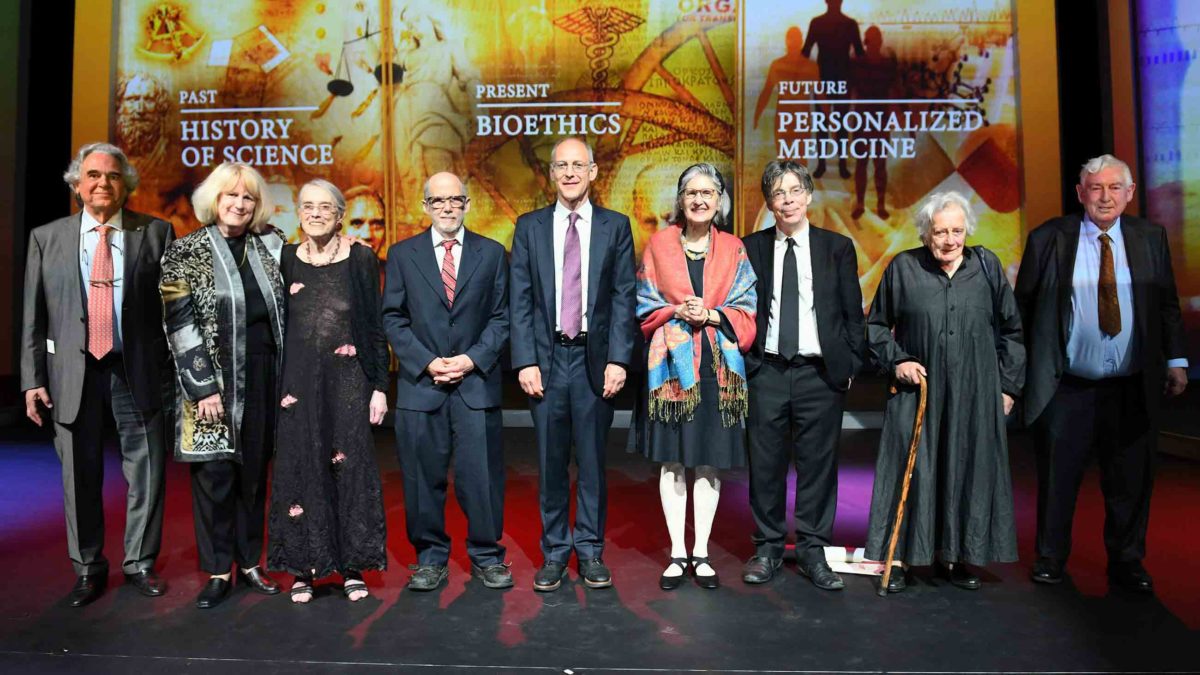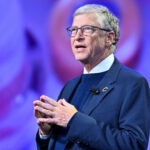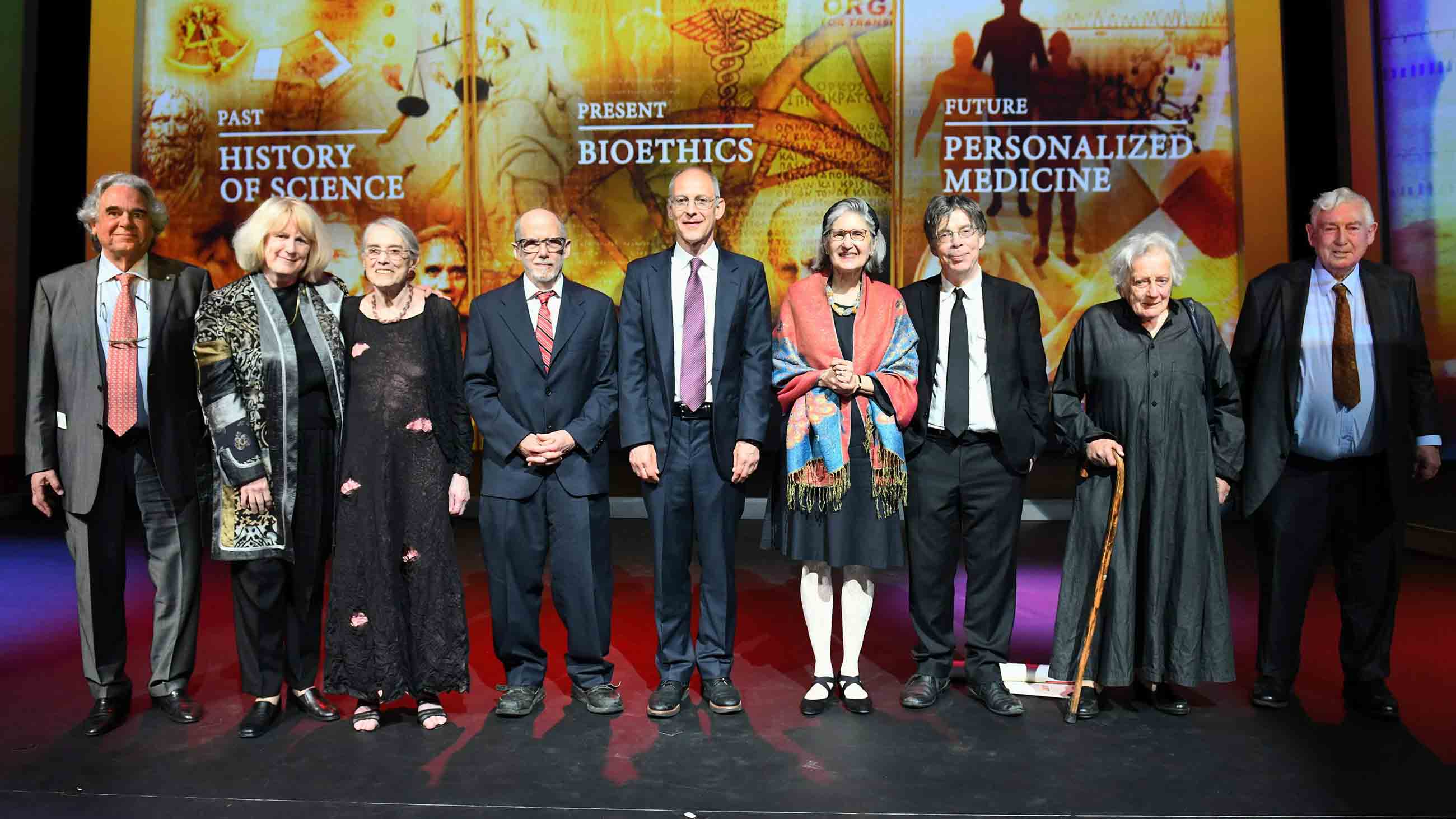In Prestigious Prizes for Scholarship, Science Makes a Clean Sweep
Earlier this month, as it has since 2002, the Dan David Foundation, a Tel Aviv-based philanthropic organization bearing the name of its late founder, awarded a total of $3 million to nine scholars from around the world for their contributions to humanity. The prizes are divided into what are called Past, Present, and Future categories — which to David represented the three realms of human achievement.

The nine 2018 laureates honored by the Dan David Foundation earlier this month share $3 million in prize money.
Visual: Israel Hadari
Historically, the foundation has awarded prizes to a mixture of subjects, from archaeology and heritage preservation to achievements in the arts and the physical sciences. But this year’s event was special: All of the foundation’s prizes honored science-related work — specifically for endeavors in science history, bioethics, and personalized medicine.
The prestigious award’s nod to three science historians — including Simon Schaffer of the University of Cambridge in the U.K., Lorraine Daston of Germany’s Max Planck Institute, and MIT’s Evelyn Fox Keller — was seen by some as particularly overdue.
“History of science is a topic that has often been ignored in the past,” said Hanna Gray, a board member of the foundation and a professor emerita of the University of Chicago.
The prize’s namesake would surely have been pleased. A holocaust survivor, Dan David was a polymath who spoke several languages and valued scholarly pursuit. Originally a journalist and later a successful entrepreneur, he established the prize to help others pursue their dreams and advance the progress of humanity. David died in 2011, but speaking at this year’s event at Tel Aviv University, his son and foundation director, Ariel David, emphasized the challenges facing the sciences today.
“We live in times when the place of education and reason is being questioned. Science and its most basic conclusions are being challenged,” Ariel David said, “from the effectiveness of vaccines to the dangers of climate change.”
According to the foundation’s chairman and former president of Tel Aviv University, Itamar Rabinovich, the board generally aims to highlight disciplines that haven’t received proper attention, and the prizes help reward and encourage work in those specific fields. With many historical, societal, medical, and political factors taken into account, many of the board members suggested that the three subjects chosen this year felt timely and important.
Rabinovich also said that it is important to remember how science transfers and evolves from one culture to another over time. From Arabic numerals to Avicenna’s medical insights, many discoveries produced by the early Islamic scholars were adopted by the Medieval Europeans and helped advance Western science — a fact equally important for the European and Middle-Eastern societies, and sometimes forgotten. “Science as we have it today is a result of a long evolution,” Rabinovich said, “and it’s very important to understand it, and understand its different phases.”
In fact, history of science as a field has entered a new phase, having transformed in the recent past, Gray said. Historians now view it not as an abstract discipline used to document scientific advancements, but as a complex subject that must take into account the social, cultural, political, and historical contexts in which it develops.
Robert Gallo, another board member and director of the Institute of Human Virology at the University of Maryland School of Medicine, shared a telling memory of how some science views and methods changed in the just recent past — during his lifetime. “I remember a time when we thought we were more appropriate and more ethical and more — should I say the old-fashioned word ‘manly’ — to exclude women from trials and experiments,” in order to protect them from unintended ill effects, he said. Today we view this concept as unethical and scientifically wrong, because it precludes women from equally benefiting from the studies’ results. “The era you are living in often determines what is the ethical thing to do.”
That and other facts and discussions prompted the board to name bioethics as the second seminal subject. From engineering life to genetically modifying and cloning it, humans amassed an unprecedented power of altering themselves and their environments, with extraordinary and unpredictable consequences. “Science can run ahead, so to speak, of the values and larger kinds of decisions that societies may need to make,” Gray said. In this realm, bioethics is charged with drawing the lines of right and wrong. When prize laureate Jonathan Glover, an ethics professor at King’s College London, delivered his acknowledgement speech, he shared several troubling conundrums that bioethics might tackle next — including the ability to read people’s minds and machine intelligence replacing human brains, which could end the concept of human cognition, as we know it.
“My worry is that this wonderful adventure of consciousness, of subjective awareness of what the world is like, could come to an end,” Glover said, alluding to the trouble looming ahead. “I hope that bioethics will remain lively in the future as we look at these slightly terrifying advances in science that may be upon us.”
Personalized medicine won the vote as the emerging new paradigm in health care. Although a young discipline, it has already showed promise for certain cancer types, and raised hopes for more, Gallo said.
In the reasonably near future, people will start viewing their treatment and prevention choices through the lens of their own genetics, Gallo noted, which will affect every living individual. And as they consider these novel choices, people will also have to ponder the bioethical dilemmas about their life, death, health, and how they fit into their moral, cultural, or religious views of the world.
“These are issues that impact everybody,” Gallo said.
“If you are a thinking person, you should be thoughtful about these problems,” he added, “because if you aren’t not, who is going to be?”
Lina Zeldovich is a science writer and editor. She has edited features for Nautilus magazine, has written for Newsweek, The Atlantic, Smithsonian, Audubon, Nature, and Scientific American, among others, and is a columnist at JSTOR Daily.











Comments are automatically closed one year after article publication. Archived comments are below.
So glad to see that science-related work was recognized and awarded, especially in view of the anti-science stance and behavior of the US Government.